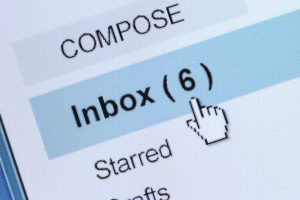
The overwhelming amount of coverage surrounding the Coronavirus has created a brand new danger – phishing email attacks looking to exploit fears about the virus
The overwhelming amount of coverage surrounding the Coronavirus has created a brand new danger – phishing email attacks looking to exploit fears about the virus. So how does it work? Cybercriminals are sending emails claiming to be from real organizations with information about the Coronavirus. These phishing emails might ask you to open up an attachment to see the latest numbers and statistics. If you click on the attachment, you’re probably downloading malicious software onto your devices. The dangerous software, otherwise known as malware, could allow cybercriminals to take control over your computer, log your keystrokes, and access your personal information. Read on to learn what’s real and what isn’t regarding phishing emails and the Coronavirus.
How Can I Spot Coronavirus Phishing Emails?
Coronavirus-themed phishing emails can take many different forms. One form is a CDC alert that is designed by cybercriminals to look as if they’re from the U.S Centers for Disease Control. The email may falsely claim to link a list of Coronavirus cases in your geographical area. “You are immediately advised to look through the cases above for safety hazards,” the text of one of the more common emails reads.
Health Advice Phishing Emails
Phishers have sent emails that offer medical advice to help protect you against the harmful Coronavirus. The emails may claim to be from medical experts around Wuhan, China, where the outbreak started. “This little measure could save you,” one of the phishing emails say. If you receive these phishing emails, ignore them right away.
Workplace Policy Phishing Emails
Cybercriminals have begun targeting employees’ workplace email accounts now. One phishing email starts with “All, due to the COVID-19 outbreak, (company name) is actively taking safety measures by instituting a Communicable Disease Management Policy.” If you happen to click on the fake company policy link, you’ll be downloading dangerous software onto your computer.
How Can You Avoid Scammers and Fake Ads?
Scammers have also posted ads that claim to offer cures or treatments for the Coronavirus. The advertisements usually try to create a sense of urgency to reel in clicks. At least two things could happen if you respond to these ads. You might click on the ad and download malware onto your computer. Or you might buy the product, and receive something useless, or nothing. Meanwhile, you could have just put your name, address, and credit card number at risk. Avoid any ads for the time being involving Coronavirus treatments.
En-Net Services Can Help Today
Experience a superior method of getting the public sector technology solutions you need through forming a partnership with En-Net Services. Our seasoned team members are familiar with the distinct purchasing and procurement cycles of state and local governments, as well as Federal, K-12 education, and higher education entities. En-Net is a certified Maryland Small Business Reserve with contract vehicles and sub-contracting partnerships to meet all contracting requirements.
To find out more about our hardware services, printing, and imaging services, or to hear more about how a dynamic team can help meet your information technology needs, send us an email or give us a call at (301)-846-9901 today!
